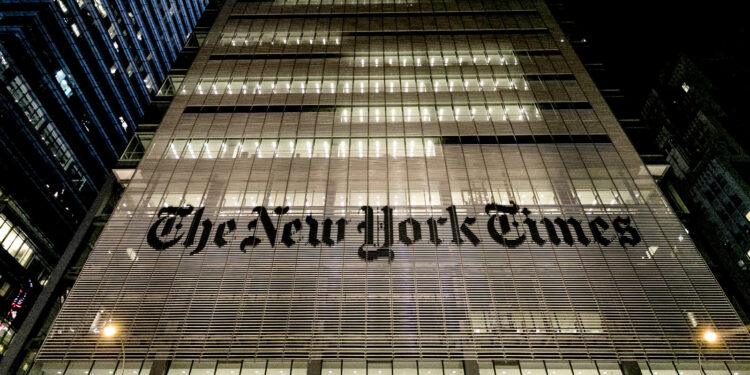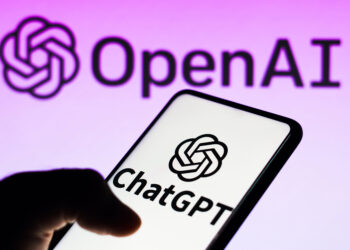The New York Times has sued OpenAI and Microsoft for unauthorized use of its published works to train their artificial intelligence tool, ChatGPT.
The Times is the first major American media organization to sue the companies, the creators of ChatGPT and other popular A.I. platforms, over copyright issues associated with its written works.
The lawsuit, filed in Federal District Court in Manhattan, on Wednesday contends that millions of articles published by The Times were used to train automated chatbots that now compete with the news outlet as a source of reliable information.
The suit does not include an exact monetary demand. But it says the defendants should be held responsible for “billions of dollars in statutory and actual damages” related to the “unlawful copying and use of The Times’s uniquely valuable works.”
It also calls for the companies to destroy any chatbot models and training data that use copyrighted material from The Times.
The complaints
In the complaints filed by the New York Times, the publishing company raised concerns about the uncompensated use of intellectual property by AI systems and accused OpenAI and Microsoft of using its content without payment to create products that substitute for it and even take its audience away.
- “Defendants seek to free-ride on The Times’s massive investment in its journalism using The Times’s content without payment to create products that substitute for The Times and steal audiences away from it,” the publication said.
The lawsuit filed on Wednesday follows an impasse in negotiations involving The Times, Microsoft, and OpenAI. In its complaint, The Times said that it approached Microsoft and OpenAI in April to raise concerns about the use of its intellectual property and explore “an amicable resolution” possibly involving a commercial agreement and “technological guardrails” around generative AI products but that the talks did not resolve.
AI as competition to news platforms
Besides seeking to protect intellectual property, the lawsuit by The Times casts ChatGPT and other A.I. systems as potential competitors in the news business.
- It noted that when chatbots are asked about current events or other newsworthy topics, they can generate answers that rely on past journalism by The Times.
- The newspaper expresses concern that readers will be satisfied with a response from a chatbot and decline to visit The Times’s website, thus reducing web traffic that can be translated into advertising and subscription revenue.
- The complaint cites several examples when a chatbot provided users with near-verbatim excerpts from Times articles that would otherwise require a paid subscription to view. It asserts that OpenAI and Microsoft placed particular emphasis on the use of Times journalism in training their A.I. programs because of the perceived reliability and accuracy of the material.
What you should know
Although the popular chatbot, ChatGPT, is owned by OpenAI, Microsoft is part owner through its investments. Microsoft has committed $13 billion to OpenAI and has incorporated the company’s technology into its Bing search engine.
OpenAI is now valued by investors at more than $80 billion and the company is reported to be in early discussions to raise a fresh round of funding at a valuation at or above $100 billion.

























The New York Times has yet to embrace the transformative potential of modern technology, hindering progress in our learning capabilities. Embracing innovative technology, such as integrating an artificial intelligence bot, could not only enhance the audience experience but also significantly boost website traffic. While the AI bot is in its developmental phase, it requires more data to reach its full potential. Despite this, The New York Times holds immense opportunities for unparalleled wealth generation and groundbreaking developments, surpassing other media publications.
Open AI has played a pivotal role in ushering in a new era of communication and accelerated learning through interactive chatbots. By leveraging extensive knowledge spanning prehistoric times to the present, these chatbots have the potential to aid us in deciphering the complexities of our future and enhancing our creative problem-solving skills.
The advent of the internet has liberated The New York Times from the confines of traditional media outlets like radio, television, and print. It is crucial to appreciate and embrace technology creators, fostering mutual understanding rather than resorting to legal disputes for monetary gains. Let us acknowledge the positive impact of technology and work collaboratively for shared benefits.